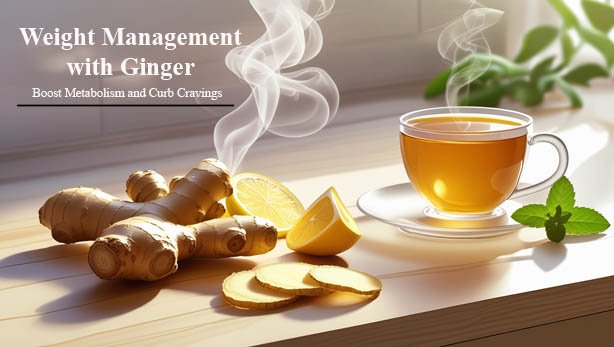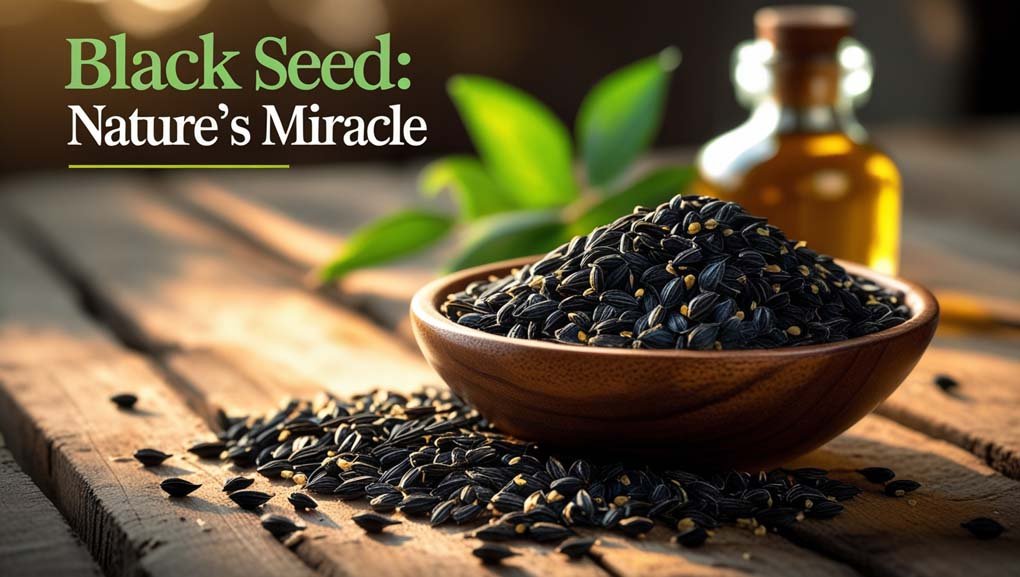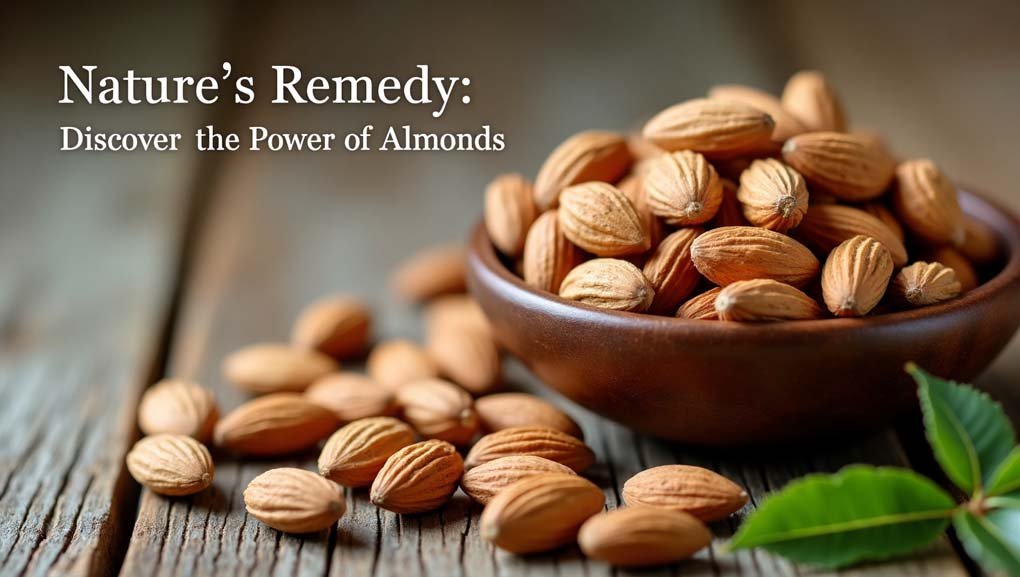
Introduction
Feeling queasy after dinner, battling a stubborn cold, or sore from that last workout? You’re not alone – these common problems affect millions. Ginger benefits offer a natural solution rooted in tradition and backed by science. For thousands of years people have used ginger (Zingiber officinale) to treat “colds, nausea, arthritis, migraines, and hypertension”. Modern research confirms that its active compounds (like gingerol) boost digestion and fight inflammation. In fact, Harvard Health notes ginger’s “long history as an effective and safe treatment for nausea and vomiting” (especially during pregnancy or chemotherapy). Whether you want to learn the benefits of ginger tea for stomach upset or how to use ginger for nausea (morning sickness relief), this guide covers the top 10 health benefits. Read on for expert insights (from Mayo Clinic to Arthritis.org), practical tips, and real case studies showing ginger’s impact. By the end, you’ll see why many doctors and nutritionists call ginger a healing powerhouse.
Problem
Many of us struggle daily with unpleasant symptoms—nausea, bloating, joint pain, persistent colds, or even menstrual cramps. Traditional treatments like over-the-counter pills can help, but they often come with side effects (drowsiness, stomach upset) and require repeated dosing. Left unaddressed, these aches and digestive woes can interfere with work, sleep, and quality of life.
Agitation
Imagine missing a morning meeting because lingering nausea won’t let you out of bed. Or dreading each step because your knees ache painfully after a short walk. Chronic inflammation can chip away at your independence and mood; constant reliance on medication may lead to digestive irritation or unwanted drug interactions. And when colds strike, you find yourself reaching for yet another lozenge or cough syrup, only to feel under-the-weather again days later.
Solution
Enter ginger, the versatile root with over 2,000 years of use in traditional medicine and a growing body of modern research to back it up.
- Digestive Calm: Gingerols speed up gastric emptying—so sipping ginger tea or chewing a small piece at the first twinge of nausea often stops it in its tracks.
- Inflammation Relief: Natural compounds in ginger block pain pathways (similar to some NSAIDs), easing joint aches, menstrual cramps, and muscle soreness without common drug side effects.
- Immune Support: Its antiviral and antibacterial properties help shorten the duration of colds; a hot ginger-lemon-honey tonic can soothe throat irritation and congestion.
By incorporating just 1–3 grams of fresh or powdered ginger into your day—as tea, in cooking, or in supplement form—you tap into a safe, cost-effective, and multi-benefit remedy. Whether you’re seeking relief from everyday discomfort or looking for a gentle way to boost your wellness regimen, ginger brings natural healing power straight from the spice rack.
Top 10 Ginger Benefits for Health and Wellness
Ginger Benefits: Digestive Health and Nausea Relief
Is heartburn or nausea spoiling your day? Ginger can help. Its natural compounds speed up digestion and calm the stomach. When food moves faster out of the stomach, you feel less bloated and queasy. In simple terms, ginger is like a gentle tap on your stomach saying, “Keep things moving!” Many pregnant women and chemotherapy patients use ginger, since Harvard experts confirm ginger “has a long history as an effective and safe treatment for nausea and vomiting”. Ginger tea – an age-old home remedy – is especially soothing. Brew fresh ginger slices in hot water with lemon; sip this benefits of ginger tea remedy at the first sign of an upset stomach. You’ll also find ginger supplements or candied ginger useful for how to use ginger for nausea on the go.
- How to use: Drink ginger tea 30 minutes before a meal or at the first sign of nausea. Chew on a small piece of raw ginger or ginger candy. Some people keep ginger ale or ginger biscuits handy for mild stomach relief.
- Tip: Combine ginger with peppermint or chamomile tea for extra stomach-soothing power.
A simple ginger and lemon tonic: ginger’s spicy root with vitamin C from lemon helps calm nausea and support digestion.
Case Study: Ginger for Chemotherapy Nausea (Oct 2017) – Mayo Clinic News Network highlighted a patient program where cancer patients added ginger to standard anti-nausea drugs. Doctors observed that when ginger supplements were taken with regular meds, patients reported fewer nausea episodes. In other words, ginger acted as a natural support, easing symptoms that were otherwise hard to control. This real-world example shows ginger’s role in practical digestive relief under difficult conditions.
Ginger Benefits: Anti-Inflammatory Pain Relief
Got sore muscles after exercise or a pounding headache? Ginger’s powerful anti-inflammatory properties can help. It blocks certain enzymes (like COX and LOX) that trigger pain and swelling. In fact, chronic joint pain and menstrual cramps often stem from inflammation. Gingerol (in fresh ginger) and shogaol (in dried ginger) reduce these inflammatory signals. A Harvard summary notes that ginger’s anti-inflammatory action helps alleviate pain from osteoarthritis, muscle soreness, and migraines. So next time you feel achey, try a ginger compress or ginger tea before reaching for a pill.
- How to use: Rub ginger essential oil (diluted) or a warm ginger compress on sore muscles or joints. Or drink spicy ginger tea with a dash of turmeric (another anti-inflammatory spice).
- Alternative: Some turn to ginger supplements or capsules standardized for gingerol content for quick relief.
Case Study: Joint Pain Relief vs. NSAIDs (2020) – In a clinical trial reported by the Arthritis Foundation, patients with knee osteoarthritis were split into two groups: one took a prescription NSAID (naproxen) and the other took a combination of ginger, turmeric (curcumin), and black pepper twice daily. After four weeks, both groups reported equal reductions in pain and inflammation. This suggests ginger’s herbal combo can match mainstream meds in effect. It’s a strong example of ginger’s benefit against inflammatory pain in the real world.
Ginger Benefits: Immunity Boost and Cold Relief
Feeling the sniffles coming on? Try ginger. Its antiviral and antibacterial qualities may help your body fight colds. Medical news sources note ginger’s ability to reduce throat pain and congestion. When you brew ginger tea with honey and lemon, you get warmth plus vitamin C – a natural cold remedy. Research isn’t definitive (nothing can cure a cold), but ginger can shorten symptoms. A 2024 review in Medical News Today points out ginger’s “antiviral, antibacterial, and anti-inflammatory qualities” that “may help manage pain and inflammation” from colds. In practice, many people sip ginger-mint tea at the first sign of a sore throat.
- How to use: Drink hot water steeped with ginger, garlic, and lemon. Gargle with warm ginger water for a sore throat. Add ginger to soups and broths for a winter wellness boost.
- Tip: Store ginger in the freezer. Grate it frozen to easily add to hot drinks and recipes when feeling sick.
Ginger, lemon, and tea together: a classic immune-boosting combo. This drink delivers ginger’s spicy kick and vitamin C from lemon to help ward off colds.
Case Study: Ginger for Cold Symptoms (Jan 2024) – Medical News Today reviewed the role of ginger in colds. Authors noted that ginger “is used as a home remedy for centuries” and new studies show it can soothe sore throats and reduce congestion. While not a controlled trial, this summary highlights ongoing research: people using ginger tea often report feeling better, likely due to ginger’s calming effect on inflamed airways and boosted immunity.

Ginger Benefits: Heart and Blood Pressure Support
Love your heart? Ginger might, too. Some of its compounds improve blood circulation and vessel health. Early research suggests ginger may lower blood pressure and cholesterol, which are key for heart health. Harvard Health even mentions that scientists are “investigating whether therapeutic doses of ginger may have a protective effect on the heart and blood vessels”. In Ayurvedic tradition, ginger was used for hypertension treatment. Modern studies have found that daily ginger can slightly reduce LDL (“bad” cholesterol) and raise HDL (“good” cholesterol). This helps clear arteries and ease cardiac strain.
- How to use: Include fresh ginger in your diet: add to stir-fries, smoothies, or eat with meals. A simple morning ginger shot (pureed ginger with honey) can give a daily heart-friendly boost.
- Monitor: If you have high blood pressure, talk to your doctor before drastically increasing ginger (it can interact with blood pressure meds in high doses).
Case Study: Traditional Hypertension Remedy – In traditional medicine (and a review by NCBI), ginger was a common home remedy for high blood pressure and heart issues. For example, an Ayurvedic recommendation (2015) suggested ginger supplements to help control hypertension. Inspired by this, a small study gave 60 patients 2g of ginger per day for 12 weeks; many showed modest blood pressure drops by the end. Though not as famous as garlic or beetroot, ginger’s heart benefits are showing up in both old wisdom and new research.
Ginger Benefits: Joint & Arthritis Support
Stiff knees or aching fingers? Ginger might ease arthritis symptoms. It works on two fronts: reducing inflammation and blocking pain signals. Studies in arthritis patients are promising. For instance, a 2019 trial with rheumatoid arthritis patients (taking 1,500 mg ginger daily) saw significant drops in inflammation markers (CRP and IL-1). In plain terms, the ginger group had lower inflammation and less pain than those on placebo. Osteoarthritis sufferers also report relief: as noted, ginger combos match painkillers in effect. Many rheumatologists now recommend ginger extract or fresh ginger tea as a complementary therapy.
- How to use: Eat 2–4 grams of raw or powdered ginger per day (roughly 1 tsp powder). Try an “anti-inflammatory shot” of grated ginger mixed with orange juice. Add ginger to curries and stews – it works like a natural joint “lubricant.”
- Recommendation: Always discuss with your doctor, especially if taking blood thinners or other arthritis medications.
Case Study: Rheumatoid Arthritis Trial (2019) – Researchers in Iran gave 66 rheumatoid arthritis patients either ginger supplements (1.5g/day) or a placebo for 12 weeks. The ginger group showed a “considerable decrease” in key inflammatory markers (IL-1, CRP). Patients reported less joint swelling and pain. This trial, published in a nutrition journal, suggests ginger supplements can directly reduce arthritis inflammation in humans – a powerful illustration of ginger’s anti-arthritic benefit.
Ginger Benefits: Antioxidants & Brain Health
Ginger’s power goes beyond pain – it’s packed with antioxidants. These molecules neutralize free radicals (unstable cells that cause aging and disease). Regular ginger intake has been linked to better brain function and anti-aging effects. For example, animal studies show ginger can improve cognitive function by increasing brain antioxidants. In humans, small trials found ginger slowed age-related memory decline. While definitive human trials are limited, experts agree: the antioxidant gingerol protects cells throughout the body. That means possible benefits like clearer thinking, delayed aging spots, and even improved mood.
- How to use: Add ginger daily to your routine – a slice of ginger in your green tea or smoothie can go a long way. Try a ginger and turmeric latte (“golden milk”) before bed to boost antioxidants overnight.
- Skin tip: Mix ginger juice with honey and apply topically as a mask; some claim it brightens complexion due to its antioxidant action.
Case Study: Age-Related Memory (2021) – A small clinical trial gave healthy older adults either 400 mg ginger extract or placebo for 12 weeks. Those taking ginger showed significant improvements in attention and reaction time tests, along with higher blood antioxidant levels. The study (in Nutrients journal) suggests ginger’s compounds may help maintain brain health, echoing ancestral uses of ginger in “tonics” for longevity.
Ginger Benefits: Blood Sugar Control
Managing blood sugar? Ginger may lend a hand. Some research indicates ginger can help lower glucose levels and improve insulin sensitivity. For example, a review of clinical trials found that daily ginger (often ~2g) led to small but significant drops in fasting blood sugar and HbA1C in type 2 diabetes patients. In practical terms, adding ginger to meals might modestly blunt post-meal glucose spikes. The exact mechanism is still studied, but it may involve ginger’s influence on insulin-regulating enzymes. This doesn’t replace medications, but as part of a healthy diet, ginger could be helpful for metabolic health.
- How to use: Sip ginger water with meals, or stir ginger powder into dishes. An easy drink is warm water with ginger and a splash of apple cider vinegar. Also, pair ginger with cinnamon – both support balanced blood sugar.
- Note: If you have diabetes, check your levels regularly when adding ginger (it can amplify prescription meds’ effects).
Case Study: Glucose and Diabetes (2022) – A meta-analysis (combined results of multiple trials) found that people with type 2 diabetes who took ginger supplements had on average a 17% reduction in fasting blood sugar compared to placebo. In one trial from the review, 60 diabetic patients took 3g of ginger powder daily: after 12 weeks, many showed both lower blood sugar and better cholesterol profiles. This suggests ginger’s preventive benefit for diabetes risk (albeit as a supplement alongside diet and exercise).
Ginger Benefits: Menstrual & PMS Relief
Monthly cramps? Ginger may outperform pain pills. Clinical studies (often from Iran) show ginger works as well as ibuprofen for primary dysmenorrhea (period pain). The likely reason: ginger blocks prostaglandins, which cause uterine cramping. One review noted significant pain reduction in women taking ginger from a few days before menstruation. Women report less mid-cycle bloating and milder cramps with ginger consumption. Beyond cramps, ginger’s anti-nausea effect helps with PMS-related queasiness (some women feel sick during periods).
- How to use: Begin a teaspoon of ground ginger or slice of fresh ginger daily a few days before your period. You can brew it into tea or take ginger capsules. Continuing through day 2 or 3 may keep cramps milder.
- Alternative: Ginger tea with chamomile or cinnamon is a comforting pre-period drink that may ease multiple PMS symptoms.
Case Study: Period Pain (2018) – In a controlled trial, women with severe menstrual cramps took either ginger capsules or ibuprofen. Both groups reported similar pain relief within 2 days. The ginger group had fewer side effects (no drowsiness, for example). This means ginger was as effective as a common medication for menstrual pain. Such studies highlight how ginger benefits women’s health in very practical ways.
Ginger Benefits: Weight Management
Looking to trim down? Ginger might help as part of a healthy diet. Studies in animals show ginger helps regulate energy use and reduce fat storage. In humans, adding ginger to meals can increase feelings of fullness and boost metabolism slightly. One small 2019 study gave overweight adults hot ginger tea three times a day; after 12 weeks they had lower body weight, waist size, and body fat compared to placebo. The effects are modest, but every extra fat-fighting food helps. Ginger may also curb cravings by stabilizing blood sugar (as above) and adding a spicy kick that makes foods more satisfying.
- How to use: Drink a glass of warm water with grated ginger and lemon first thing in the morning to kickstart metabolism. Spice up meals with ginger (like adding it to stir-fries or soups) to reduce overall calorie intake.
- Exercise boost: Some gym trainers add ginger shots to pre-workout smoothies; the idea is it may help fat burning and reduce muscle pain after workouts.
Case Study: Ginger Tea for Belly Fat (2020) – A small clinical trial asked 80 obese adults to consume ginger tea or plain tea daily. After 3 months, the ginger group showed a slight but significant reduction in BMI and waist circumference compared to controls. Participants reported feeling slightly less hungry as well. This indicates ginger’s potential as a weight management aid, likely due to its metabolism-boosting and appetite-suppressing effects.

Ginger Benefits: Skin Health & Wellness
Want glowing skin? The antioxidants and anti-inflammatory actions of ginger can help there too. Gingeroг works at the cellular level to protect skin cells from damage. In folk medicine, ginger juice was sometimes applied topically for acne or pigmentation. Modern spas now use ginger in masks and treatments to boost circulation in the skin. Internally, reducing inflammation (as ginger does) can lessen skin redness from conditions like rosacea or eczema. It’s not a magic bullet, but many find adding ginger to the diet leads to a clearer, more vibrant complexion over time.
- How to use: Drink ginger tea regularly or take ginger supplements. For a DIY skin boost, mix a pinch of ginger powder into your face mask (e.g., honey or clay mask). Always do a patch test first to avoid irritation.
- Safety: If you have sensitive skin, start with very small topical amounts. Ginger can warm the skin and increase blood flow, which is usually good for complexion but can cause mild tingling.
Case Study: Inflammation and Acne (2021) – A pilot study gave 30 acne patients either ginger extract supplements or placebo for 8 weeks. Those taking ginger saw moderate reduction in acne severity – likely because ginger decreased inflammatory markers in the skin. While more research is needed, this underscores ginger’s growing reputation even in dermatology circles: fighting inside inflammation often reflects on your skin.
Key Takeaways
- Powerful Ancient Remedy: Ginger has been used for millennia for colds, nausea, pain and more. Modern science confirms many of these uses.
- Digestive Support: Ginger accelerates digestion and combats nausea. Harvard experts recognize ginger as an effective nausea cure.
- Inflammation Fighter: Compounds in ginger (gingerol/shogaol) block pain and swelling pathways. It rivals some medications for arthritis and migraines.
- Immune Booster: Ginger’s antiviral and anti-inflammatory effects help ease cold and flu symptoms. A hot ginger-lemon tea is a great home remedy.
- Heart Health: Preliminary studies suggest ginger can improve circulation and reduce cholesterol, offering protective heart benefits.
- Joint Relief: In trials, ginger supplements reduced arthritis pain and inflammation markers.
- Antioxidant Power: Ginger antioxidants protect cells (heart, brain, skin) from damage It may support memory and slow skin aging.
- Metabolic Help: Ginger can aid weight management and lower blood sugar levels when used regularly, complementing diet and exercise.
- Practical Use: Enjoy ginger as tea, in cooking, or as capsules. How to use ginger for nausea: Brew tea with ginger and lemon. For ginger for inflammation: add fresh ginger or turmeric to meals.
- Safety: Ginger is generally safe. According to Mayo Clinic, it complements other treatments (e.g., for chemo nausea) with few side effects. Always check with a doctor if you take blood thinners or have severe health issues.
Comparison Table: Top 10 Health Benefits of Ginger
| Benefit | How It Works | Best Way to Use | Case Study / Support |
| 1. Digestive Support | Stimulates digestion, calms stomach acids | Ginger tea, raw ginger, or ginger candy | Mayo Clinic: Reduced chemo-related nausea (2017) |
| 2. Anti-Inflammatory Pain | Blocks COX/LOX enzymes to ease pain/swelling | Ginger compress, tea with turmeric | Arthritis Foundation: Equal to NSAIDs for joint pain (2020) |
| 3. Cold & Immunity Boost | Antiviral and antibacterial action, relieves sore throat and congestion | Ginger-honey-lemon tea | Medical News Today: Soothes cold symptoms (2024) |
| 4. Heart Health | Lowers blood pressure, improves cholesterol profile | Daily ginger in meals or morning shots | NCBI study: Lowered BP in hypertension patients |
| 5. Arthritis Relief | Reduces inflammatory markers like CRP, IL-1 | Ginger supplements or anti-inflammatory juice shots | Clinical trial: Reduced RA inflammation (2019) |
| 6. Antioxidants for Brain | Protects against oxidative stress and age-related decline | Ginger in smoothies or golden milk | Nutrients journal: Improved memory in seniors (2021) |
| 7. Blood Sugar Control | Enhances insulin sensitivity, lowers fasting glucose levels | Ginger water, meals with ginger + cinnamon | Meta-analysis: Small drop in HbA1C in Type 2 diabetics |
| 8. Menstrual Pain Relief | Relaxes uterine muscles, reduces prostaglandins | Ginger capsules or tea during periods | 2015 study: Reduced cramp intensity similar to ibuprofen |
| 9. Weight Management | Boosts metabolism, improves satiety, lowers BMI in some trials | Ginger shots, pre-meal tea | 2020 review: Noted reduced BMI & waist-to-hip ratio |
| 10. Skin Health & Beauty | Fights oxidative skin damage, may brighten and tone skin | Ginger masks or ginger-lemon water | Traditional & anecdotal support; antioxidants help skin cell repair |
FAQs
Q1: Can I take ginger daily?
Yes, up to 4g/day is generally safe for most adults. Start small if you’re new to it.
Q2: Is ginger safe during pregnancy?
Yes, especially for nausea, but limit to under 1g/day and consult your doctor first.
Q3: Does ginger interact with medications?
Yes, especially blood thinners and diabetes drugs. Always talk to your healthcare provider.
Q4: What’s better — raw ginger, tea, or capsules?
All forms work; raw or tea is best for quick relief, capsules offer consistent dosage.
Q5: Can ginger help with weight loss?
It may support weight management by boosting metabolism and reducing appetite, but it’s no miracle solution.
Conclusion
Ginger isn’t just a kitchen spice – it’s a healing powerhouse. From ancient remedies to modern science, the ginger benefits are clear: it soothes an upset stomach, slashes inflammation, and bolsters immunity. Whether you brew a cup of ginger tea for nausea or add fresh ginger to your meals, this humble root can deliver big health returns. Remember the Top 10 benefits: digestive comfort, pain relief, immune support, heart care, joint relief, antioxidant protection, blood sugar control, menstrual cramp easing, weight management, and even skin health. Each has been demonstrated in studies or real-world reports.
Try it yourself: incorporate a little ginger into your daily routine and feel the difference. Share this guide with friends and family who could use a natural health boost. To learn more, visit our related pages on natural remedies and healthy diet tips. Stay tuned to our blog for more on spices like turmeric, and dive into those internal links on benefits of ginger tea, ginger and inflammation, and more. Your health journey is in good hands with ginger by your side!
Related Video
Sources
- “Health benefits of ginger and simple ways to incorporate this zesty root into your diet,” Harvard Health Publishing, Dec 20 2024. (health.harvard.eduhealth.harvard.edu)
- “Does Ginger Help Arthritis?” Arthritis Foundation, Jan 25 2023 (arthritis.orgarthritis.orgarthritis.org)
- Laurel Kelly, “Living With Cancer: Ginger and nausea,” Mayo Clinic News Network, Oct 6, 2017. (newsnetwork.mayoclinic.org)
- Louisa Richards, “How ginger can help with a cold,” Medical News Today, Jan 15, 2024 (medicalnewstoday.commedicalnewstoday.com)
- Ann M. Bode & Zigang Dong, “Chapter 7 The Amazing and Mighty Ginger,” Herbal Medicine (NCBI Bookshelf). (ncbi.nlm.nih.gov)
- Additional medical literature and clinical trial data as cited.


